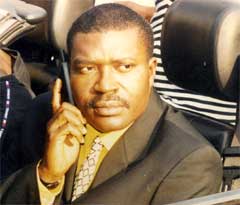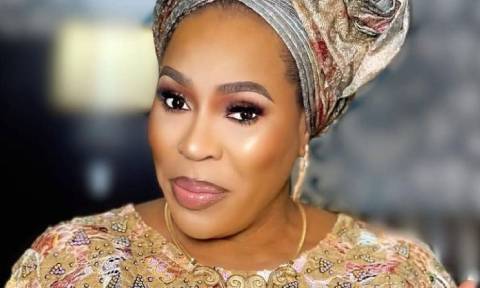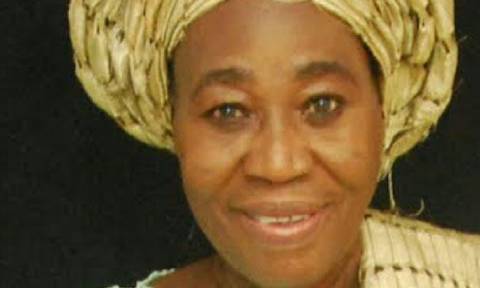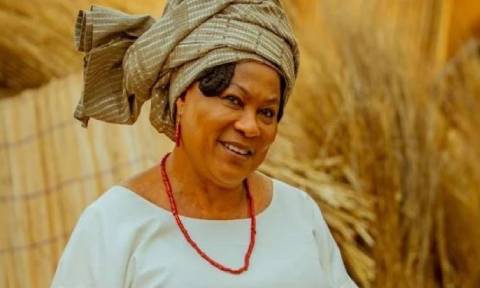
Nolly wood is dying and except help comes to the industry soon, Nigerians may wake up one day to find out that the industry once credited as the third largest movie industry in the world (after Hollywood in America and Bollywood in India) may thin down to nothing.
Scared? You’s better be because when Nollywood greats like Kanayo O kanayo raises alarm, there is need for worry.
https://www.nigeriafilms.com brings to you, a sorry picture of Nollywood as painted by Kanayo O Kanayo and what he figures is the way out for the sick industry.
You have a beautiful office. How long have you been doing business here, and what do you do?
We moved in here in November 2008 and we run a public relations and an advertising marketing initiative.
So there is another part of KOK outside what we see on the screen?
Yes. This company has been in existence since 1993 and it’s called Yobafa Ventures.
I also heard this place is often used for political meetings?
Whatever you heard should remain a rumour for now until when the sign posts are rightly put. It will not be hidden for long because we’ll tell our friends if we have any such intentions. So It’s not certain whether you are in politics or not?
I’ll not speak further on that. The fact remains that we’re all political animals who are influenced by the things around us and we need to contribute to our society. Whether actively or not, but we must take active interest in how we are being ruled or who leads us.
Do you sometimes feel depressed that the screens (acting) side of KOK is suffering?
I’m happy that you asked this question but we must give glory to God for everything. That is why I started by telling you that I’ve been in business since 1993 to ensure that I put some eggs in other baskets. This is because if I’m not acting for a month or two, my home will not suffer much especially with money coming from here.
The cause for concern right now is that the movie industry still remains a major source of income for actors and if it is not doing well, it is something we should worry about. Right now the movie industry does not hold a lot of promises for practitioners.
The scenario in Nollywood has been nothing to write home about for the past one year.
Some time ago I granted an interview to one of our national dailies and it was headlined “Nollywood is sick.” One of my younger colleagues saw me last week and said how could I say that? .
I then noticed that she didn’t understand what I mean when I said that. Then, I asked her how many movies she was able to do last year and she replied, “just a couple.”
Again, I reminded her that we are already in the third month of 2009 ,and nothing is still happening. When I asked her how many movies, she has done this year, she said just one. So I said is that a sign that all is well? So she agreed that I was right.
We have a lot of practitioners who are not taking active interest in the way the industry is going either by opinion, contribution or by holding discussions and it worries me because I have become a known voice. Some people are beginning to worry if I’m the only one in this industry. I want my colleagues to make contributions, I want us to put our heads together and look for a better way of salvaging the industry.
What about the structures?
The structures are wrong. For me I think we should break it down to the manner of stories we produced that led to the success of Nollywood. What are the things we’ve not been able to do to take Nollywood to the next level? . We should start looking out for how we can transient into the next level. We need more collaborations, associations and cooperation amongst ourselves.
For now the industry has gone beyond comfort zone and there is nothing we can do to take it to the next level except we come together.
People thought the marketers were the real problem the industry was facing . . .
No, we don’t need to do away with the marketers, we should give them kudos because they helped in exposing Nollywood to the world. The problem they had was that they were operating like traders and not businessmen. A businessman pays his workers very well so that he can recoup even when he’s operating at the capitalist level.
He does this so that the business will not collapse but because the marketers were operating like traders, they refused to pay their workers, that was one of the things that led to the near death of the industry. That also resulted to big time actors wrestling among themselves to get their favours which are not supposed to be.
Instead the battle for supremacy should have been between the independent producers. But then these producers don’t have enough finance as the marketers to finance movie production.
This business is all about investment, the more you put in, the more you reap. There is no need to fight. A balance must be maintained at all times, if there must be stability in the business. So instead of sharing ideas and moving the industry forward, the independent producers saw it as a fight to finish with the marketers, so the industry began to go down. Right now, I’m sorry for those who staked their money.
We hear the banks are on the necks of some independent producers . . . ?
Of course ,they have to pay back because the banks are not Father Christmas. The fact still remains that it is not about how many actors they wrestle that will earn them financial power or otherwise, but how well they were able to execute their business.
What about the Emeka Mba issue (NFVCB) where marketers are meant to be licenced . . .?
In February 2007, when I was still the reigning AMAA Best Actor, I addressed a press conference where I called for early capitalisation of the industry.
I also pointed out that every national distributor should have a capital base of 300-500 million naira and should also have presence in the six geo-political zones of the country. With this you can convince the banks to do business with you.
The problem the distributors have is that, even those who do not have enough capital are all over the place. It was after this press conference which I sponsored from my pocket that the NFVCB now came up with this licence idea. Then some people started saying I have become an agent of government, they were going to suspend me and so on but I kept quiet.
Instead of these distributors to go back and do their homework, they started attacking Mba on the pages of newspapers without even hearing from him.
Recently, these same people went to the present Information Minister Dora Akunyili to tell her that nobody should say anything outside what Emeka Mba already has on ground. These people speak from both sides of their mouth.
They have not even apologised to me and I’m not looking forward to that apology because I have moved on. They didn’t know that Emeka Mba tried to bring down the capital base to accommodate everybody.
The greedy thing some of them did even without details of the reform as announced by Emeka Mba was to try and even register up to four companies and get perhaps four licenses. And I asked “why not register only one and let the rest become subsidiaries or distribution outlets.
We also heard about actors being licenced and I ask where these actors will get money to buy licence?
The actors do not have to produce the money in cash. It could be on insurance or property worth.
Why should the actor be licenced?
I don’t see anything wrong in licencing the actor if he has the capacity. The challenges we have in the movie industry right now are much but they’ll be met but then one good hand must be on deck. This is not a time to be complacent.
A lot of industry practitioners do not want to speak up. I don’t know why they are afraid of. I want to also say “A lot of persons are diverting interest from the industry” and that’s a cause for worry. If they find, better opportunities out there then know that it will be strong and difficult to bring them back.
As a person I’m also diverting and divesting. When you are in an industry where you can’t even change your car while people believe you are a super millionaire then there is a problem.
I’ll keep talking so that those who can better the industry can come up. I’m no longer interested in seminars and workshops. We need action.
In the music industry, the videos produced here can compete favourably with any other produced in other parts of the world. When will this change come to the movie world?
It’s so unfortunate that these same distributors are not clamouring for a change. At least 92.8% of them are not change agents.
They don’t toy with new ideas and they are limited by their environment. They are not willing to take some risks. Give me a good script and I can do it for free. I think we should leave the zone where producers use their feeding money to do movies and also forget about producing domestic movies. We should begin to do movies that are of international standard and appeal.
That is how Nollywood can get to the next level. We were part of the second Nollywood film festival in Tinapa where we had agreements that even if you must do a movie about juju, it must have a classic picture and we’ll take it to the Oscars and qualify it.
Look at this movie on the ‘passion of the Christ’. It was a beautiful production. Let’s begin to take care of our pictures, audio etc. There are basically four letters wrong with our movies which are LAMP (Light, Audio, Mood and Picture).
If we are able to take care of these four letters then I think we’ll be able to compete favourably in any part of the world. I want us to get to that stage where viewers will cry when actors cry in movies.
I think white water was good . . .
Yes, that was a professionally produced story by Izu. Usually he takes about three to five months to produce such stories. Such professional movies can’t be achieved in two weeks and so much money is required and less pressure needed. You can have Stephanie Okereke or Nkem Owoh on set for three months but you’ve got to pay.
When was the last time you featured in a movie?
It’s over a year now.
Why so long? .
I cannot follow the crowd. Upon all, God has been faithful and one has to use what he has to get what he wants.
How do your fans react to you when you walk on the street?
Ah! It’s the normal way of commending or embarrassing you. Some people will say they’ve not seen you in movies and I’ll tell them, I’m in school. I’m doing my M.Sc in political science.
Any embarrassing moment?
The major one is where people trying to judge you with what they see on the screen. And they say it so loud that even those who don’t watch movies begin to think that you are either a ritualist, criminal or someone who should not be associated with. But we contend with all that.
I’ve also told my colleagues who think they’ve attained Hollywood standard that there is no Hollywood in Nollywood because we all buy from the same market. There is no where in Nigeria that actors can live in a secluded area so as long as we all live together we must continue to contend with them.
How do you manage the home front?
It used to be very tough in those days when we shot in Enugu, Enugu State. There was a particular time I stayed three straight months there but my wife is used to me and my job. Even my kids are also used to me and the job.
And anytime I’m packing any medium size bag, they’ll say Daddy, are you going to Enugu, Abuja or America and I’ll reply yes. Sometimes when I call from Enugu, my kids will ask, “Daddy, you are shooting a movie?” and I’ll say yes. The next question will be “When are you coming back daddy.”
I think it’s better you let your kids know the kind of job you do. One problem we have in this country is that our children do not know the source of our money so they cannot protect what they don’t know about.
What are some of the benefits of being a successful actor?
One is that societal expectation is too high. If somebody comes to ask you for fifty thousand and you tell him you don’t have, you become an instant enemy because he feels you have it. Secondly when people see that your car is not of the 20008/2009 model, they are not happy with you.
The bane of the industry is that you live for the public. As soon as you live your house, you loose your privacy. But again it makes us do the right thing all the time. And at the end, the gain outweighs the pains.
You were once best Actor in AMAA, did it add any value to your profile?
Yes. Most of the things I know today have been as a result of the exposure which the AMAA awards gave to me. It gave me wings to fly and an opportunity to create my own paces. It also made know what to say and when to say them.
Financially too, it was rewarding. A lot of people celebrated with me, I get to somebody’s office and I’m given some cheques, gifts like shirts, ties etc. It really added value to my career.
What do you think about AMAA generally?
The concept of AMAA is to celebrate PAN Africanism and our success generally and I wish them well.
Do you think it was a good thing for UBA to come into it?
Yes. And all they want is the advancement of the art, creativity to foster unity among practitioners in Africa. I think it was a good vision.
Do you see other companies emulating UBA?
In such events there is a major sponsor. In AMAA, UBA and Bayelsa State government are major sponsors and there are other peripheral sponsors. We also had the telecommunication companies, Nigerian Breweries supplying the Eva water and so on.
Again I want to be quoted here I don’t know what AMAA will qualify people for this year” because the dearth of movies in Nollywood will affect their performances this year. I don’t want people to feel that I’m saying this because I have a disliking for the organisers no. What I’m clearly saying here is that I do not think Nigeria has got the movies to compete for AMAA this year.
But I’ll give them kudos if they are able to organise a good AMAA this year in terms of contents because I also do not know what other African countries are coming up with. Except for Amstel Malta Box Office (AMBO), I don’t know what the individual producers were able to come up with between last year and now. I still need to be convinced.



















